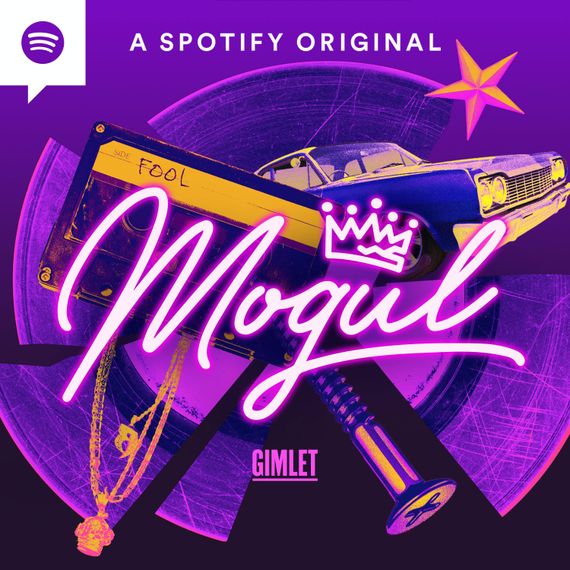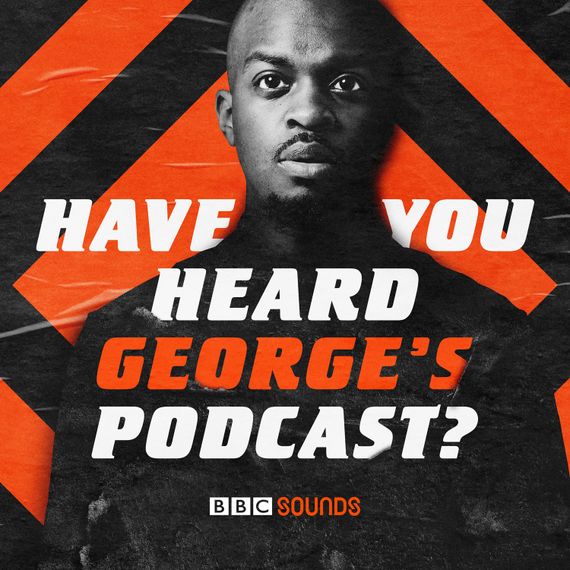
Tell me what you’re listening to. Find me on Twitter or reach me over email: [email protected].
Mogul: Season 3
Apple Podcasts | Spotify | Website
“Chopped and screwed” took about two decades to drift from its Houston origins into mainstream hip-hop, and therefore the center of pop culture. You can hear the technique, which involves dramatically slowing down a song to a rhythmic crawl, all over modern music, from fellow Houston native Travis Scott’s Astroworld to Harlem-born A$AP Rocky’s “Purple Swag,” among many, many other recent jams. (You can also hear it briefly implemented in the soundtrack for Barry Jenkins’s Moonlight, which rules.) I find the effect compelling and gorgeous: The forceful elongation of a familiar tune has a way of tickling the same part of your brain as a great cover of a beloved song would. The distension adds a dash of surrealism to the song, as if time and reality itself is bending, like it tends to do when something really big is happening in your life … or during a near-death experience, as they say.
The man who pioneered the technique, Robert Earl Davis Jr. (a.k.a. DJ Screw), who died in 2000 at the age of 29, was described to be a recluse in his life, and partly because of this, his legacy as the creator of this increasingly influential sound is said to be underappreciated in the mainstream. I’ll take Mogul’s word on this point, as I’m little more than a casual consumer of hip-hop history. In any case, this is the entrypoint for the hip-hop-focused audio-documentary series’ third season, which debuted last month and endeavors to build a cohesive accounting of the legendary DJ’s life.
Mogul started as a direct collaboration between Gimlet Media and the Loud Speakers Network, the podcast network co-founded by the late Reggie Ossé. The first season, released in 2017 and hosted by Ossé before his death later that year, focused on the life and legacy of Chris Lighty, the music executive whose business dealings helped usher in the hip-hop industry’s extremely lucrative modern era. (Lighty and Ossé, a music attorney in his pre-podcast era, were contemporaries.) The second, released in 2019, switched locales to Miami but stuck with the retrospective approach, training its attention on the birth of southern hip-hop through the story of The 2 Live Crew.
Hosted by Brandon Jenkins, this latest season more or less follows the same template. It is, in many ways, a straightforward biographical documentary of a genius, tracing Davis’s arc from his early life in a tiny Texas city to his rise on the Houston scene. But just because it’s fairly conventional doesn’t mean it isn’t interesting. What’s really working for me this season, in particular, is the effectiveness with which Jenkins and his team build a vivid sense of an emerging scene — how one man tinkering on his own would become the anchor for a sound, a collective project, and a community of practitioners, some of whom would go on to rebuild the rest of the world.
Have You Heard George’s Podcast?
Apple Podcasts | Spotify | Website
It’s hard to describe the BBC Sounds’ Have You Heard George’s Podcast? as an elevator pitch. And, frankly, this is a huge part of its fundamental appeal. The brainchild of George Mpanga, the British Ugandan multi-hyphenate artist better known as George the Poet, in collaboration with the equally multi-hyphenate producer Benbrick, the show (which is broken not into seasons but into “chapters,” in Mpanga’s preferred parlance) is an electrifying collection of genre-hopping, musical, and spoken-word experiences. You might get a two-part quasi radio play meditating on the 2017 Grenfell Tower tragedy, or you might get a shape-shifting literary metaphor that is exaggerated and extrapolated to the nth degree. Breathless creativity is the engine of Have You Heard George’s Podcast?, with each track often assuming a stream-of-consciousness flow that swivels back and forth between different ideas, scenes, characters, and sonic approaches to a point where it can leave you overwhelmed and exhausted. Which, to be clear, is a good thing. You get on a roller coaster for a reason.
Mpanga’s work tends to largely be associated with his interests in exploring the political and how he’s able to connect it to the personal. Many of the podcast’s episodes run through the ramifications of imperialism and the experience of immigrants who reside in the United Kingdom, navigating the region’s specific style of racism and oppression. For this, Have You Heard George’s Podcast? has been honored with a Peabody Award, the first podcast outside of the U.S. to win the prize.
But equally present in the show is a strong sense of reflexivity. More than a few installments of the show (see: “Who Am I?” and “A Hard Taskmaster,” among others) feature George the Poet reflecting on his growing reputation, foregrounding the essential questions of the artist: For whom does he perform? What is the best use of his platform and power?
It’s all endlessly fascinating, even if it doesn’t always work. Have You Heard George’s Podcast? returned last week for a third chapter, and it comes with new trappings, including access to Abbey Road for recording purposes and musical backing by the BBC Concert Orchestra. It also comes with a new gambit: Common Ground, an online platform meant to invite listeners to collaborate on the podcast. Given the intensity of George the Poet and Benbrick’s intent to innovate, I’m interested and excited to see what comes of it.
Meanwhile…
• Fresh Air republished its 2016 interview with Anthony Bourdain on the occasion of the release of Road Runner, Morgan Neville’s documentary about the late chef, writer, and TV personality. There has been some recent controversy surrounding the doc, partly about the use of artificial intelligence to recreate Bourdain’s voice for a few lines of narration. Against the backdrop of that hubbub, it’s nice to revisit an instance of the real deal.
• The graphic novel adaptation of Bubble — Maximum Fun’s highly entertaining 2018 fiction podcast set in a world where there’s a gig economy for, uh, killing monsters — was released last week, which makes this as good a time as any to check out the original audio show, if you haven’t already.
And that’s a wrap for 1.5x Speed! Hope you enjoyed it. We’re back next week, but in the meantime: Send podcast recommendations, feedback, or just say hello at [email protected].
More 1.5x Speed
- The Podcasts Caitlin Pierce Is Listening To Right Now
- The Longform Episodes We Won’t Forget
- What Rachel Maddow Is Listening To




